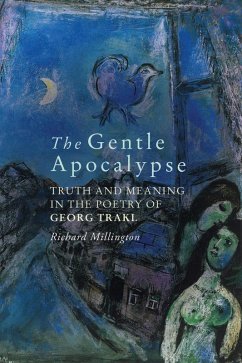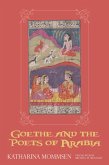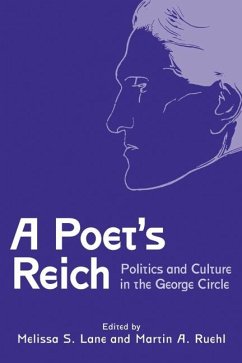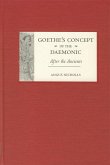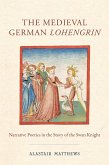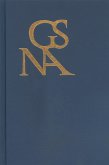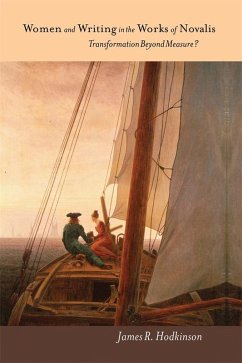Through close readings of poems covering the span of Georg Trakl's lyric output, this study traces the evolution of his strangely mild and beautiful vision of the end of days.
Like much German-language poetry of the years preceding the First World War, the poems of Georg Trakl (1887-1914) are imbued with a sense of historical crisis, but what sets his work apart is the mildness and restraint of his images of universal disintegration. Trakl typically couched his vision of the end of days in images of migrating birds, abandoned houses, and closing eyelids, making his poetry at once apocalyptic, rustic, and intimate. The argument made in this study is that this vision amounts to a unitary worldview with tightly interwoven affective, ethical, social, historical, and cosmological dimensions. Often termed hermetic and obscure, Trakl's poems become more accessible when viewed in relation to the evolution of his methods and concerns across different phases, and the idiosyncrasies of his strangely beautiful later works make sense as elements of a sophisticated system of expression committed to "truth" as a transcendental order. Through close readings of poems covering the span of his lyric output, this study traces the evolution of Trakl's distinctive style and themes while attending closely to biographical and cultural contexts.
Richard Millington is Senior Lecturer in German at Victoria University of Wellington (Aotearoa New Zealand). He is the author of Snow from Broken Eyes: Cocaine in the Lives and Works of Three Expressionist Poets (2012).
Like much German-language poetry of the years preceding the First World War, the poems of Georg Trakl (1887-1914) are imbued with a sense of historical crisis, but what sets his work apart is the mildness and restraint of his images of universal disintegration. Trakl typically couched his vision of the end of days in images of migrating birds, abandoned houses, and closing eyelids, making his poetry at once apocalyptic, rustic, and intimate. The argument made in this study is that this vision amounts to a unitary worldview with tightly interwoven affective, ethical, social, historical, and cosmological dimensions. Often termed hermetic and obscure, Trakl's poems become more accessible when viewed in relation to the evolution of his methods and concerns across different phases, and the idiosyncrasies of his strangely beautiful later works make sense as elements of a sophisticated system of expression committed to "truth" as a transcendental order. Through close readings of poems covering the span of his lyric output, this study traces the evolution of Trakl's distinctive style and themes while attending closely to biographical and cultural contexts.
Richard Millington is Senior Lecturer in German at Victoria University of Wellington (Aotearoa New Zealand). He is the author of Snow from Broken Eyes: Cocaine in the Lives and Works of Three Expressionist Poets (2012).
Dieser Download kann aus rechtlichen Gründen nur mit Rechnungsadresse in A, D ausgeliefert werden.

